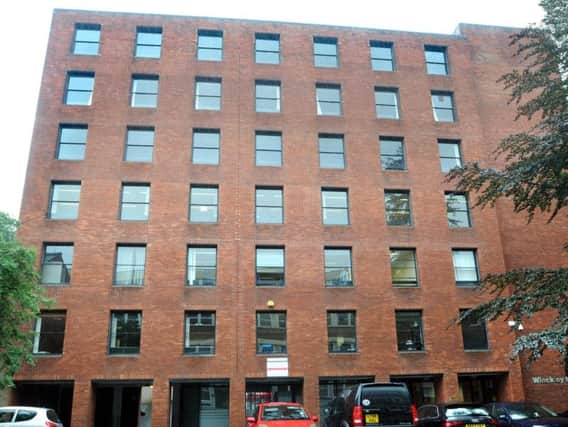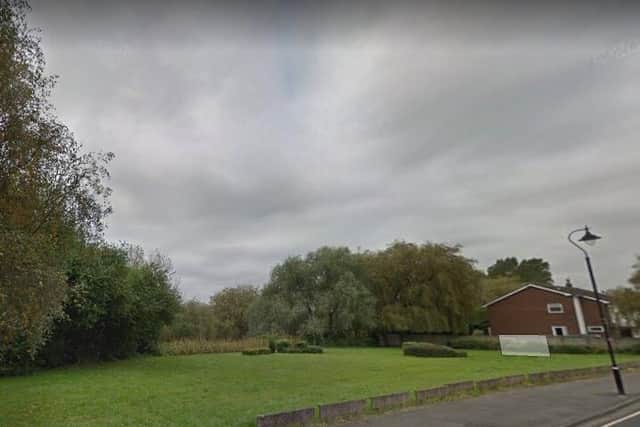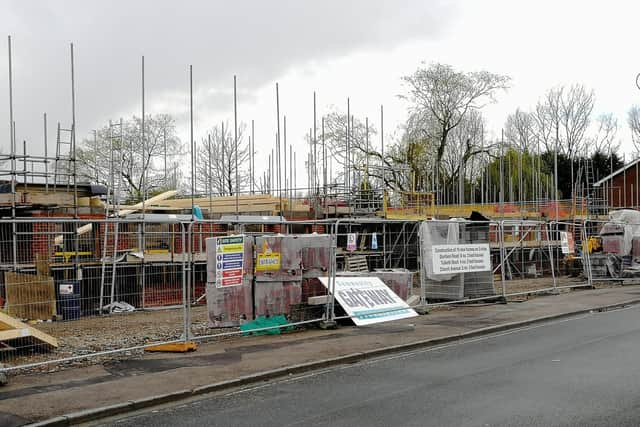Lancashire's great assets sell off - but what was sold to make the millions?


But no definitive list of buildings and land which have been sold - nor the price paid or who purchased them - is publicly available. County Hall said that a freedom of information request to produce one was too time consuming to fulfil.
Out of more than 350 councils in England, the authority is amongst fewer than 10 percent which have refused to reveal at least partial details of its disposed assets in response to enquiries made by the Bureau of Investigative Journalism.
Advertisement
Hide AdAdvertisement
Hide AdAs part of a joint investigation, the Lancashire Post has discovered that the council did previously maintain a list of all county-owned properties and land on its website, but that has not been updated since 2015 - and the authority says the information is no longer held in that format.


Only if an asset is valued at more than £1.5m have decisions about offloading them had to be taken in public by cabinet members. Otherwise, the power can be delegated to council officers - and, as of last week, the threshold for published decisions increased to £1.6m.
However, details of lower value transactions do enter the public domain if they involve the disposal of anything which requires public consultation - or if the council simply decides to publish its proposals.
Sales have stepped up since 2016/17, when the government relaxed the rules about how cash from council sell-offs could be spent. Previously, the income had to be invested in capital projects, like buying or building new assets.
Advertisement
Hide AdAdvertisement
Hide AdBut the then chancellor, George Osborne, told councils that they could instead use it to redesign their services - provided it reduced the long-term costs of delivering them. Like most local authorities, Lancashire County Council has been engaged in an annual search for savings since austerity first bit into their budgets in 2010.


During the first two years of the new freedoms, County Hall cashed in £16.7m worth of asset sales, which was then invested in reshaping services. For 2018/19, the council had banked on raising even more in a single year - £18.5m.
However, the Post has learned that delays in delivering the retail, employment and housing development at Cuerden in South Ribble have seen the expected income for the current financial year fall to just £7.5m.
But with the money already earmarked to deliver savings programmes, the authority will have to dip into a windfall which it received last year when it emerged it had been setting aside more money than necessary to cover the cost of borrowing.
Advertisement
Hide AdAdvertisement
Hide AdYet even after that drop in forecast income, Lancashire County Council is still the fourth biggest spender of the proceeds from sell-offs on overhauling services.
At the authority’s budget last month, it was revealed that there are plans to generate another £15m from asset disposals over the next two years.
Unlike several other councils, however, it has not made use of the revenue raised from sales to fund any of the more 2,500 redundancies made at the authority in the last five years - that cost has been met from ever-depleting reserves.
According to the man holding the purse strings at County Hall when the government granted more flexibility to councils, the move was long overdue.
Advertisement
Hide AdAdvertisement
Hide Ad“I’ve never thought government should have any say at all in how councils manage their money,” says David Borrow, who was deputy leader during the previous Labour administration between 2013 and 2017.
“We invested millions of pounds, but knew we’d be saving tens of millions in the long term.
“The big initiative that continued even after our administration ended was investment in changing the systems in adult and children’s social care. Usually, when you think of ‘investing to save’, you’re just talking about putting in a fancy computer or new bit of kit.
“But we brought in a group of experts who had a proven track record of improving these services - and making significant savings at the same time. It was often simple things like staff responding more quickly to certain incidents,” he explains.
Advertisement
Hide AdAdvertisement
Hide AdBut in order to fund that investment, the then member for resources spearheaded the single biggest sell-off of buildings in the council’s portfolio. More than a hundred premises - mostly children’s centres and libraries - were earmarked for closure in a controversial move towards the creation of neighbourhood centres delivering several county council services from a single building.
However, the veteran politician - who served as MP for South Ribble between 1997 and 2010 - says the driving force behind the decision was not the money which would be made to reinvest, but the money saved by shutting up shop in dozens of locations.
“I don’t think [the change in government policy] made a huge difference to how the county council operated, because we already had a significant capital programme [for investment].
“So if we could run the services from fewer buildings and sell those we didn’t need, that would give us money in the pot to spend [on projects] - but reducing the revenue budget was actually the key factor in those decisions,” he adds.
Advertisement
Hide AdAdvertisement
Hide AdWhen the Conservatives retook control at County Hall, the library sale plans were scrapped after the party made it a major election issue.
But over 50 children’s centres did close - and further reductions in the number of buildings delivering family services are due to be confirmed by the current administration in the spring.
That could see some of them join those other disused assets which have already been jettisoned - but, as things stand, they will not form part of a public list of everything which went before them.
A spokesman for Lancashire County Council said: "The freedom of information request was refused because of the length of time it would have taken staff to collate the information. A public authority is not obliged to comply with a request where to do so would exceed a limit of 18 hours of work.”
Advertisement
Hide AdAdvertisement
Hide Ad"The council routinely disposes of assets when they are no longer needed, benefitting residents by bringing in extra revenue. In recent years a number of assets, including property and land, have been sold or transferred.”
The organisation which represents county authorities said they had been left with little option but to turn to their treasure chests as times got tough.
"If given the choice, would you consider selling a disused council building to raise funds to deliver a balanced budget – or would you retain that asset for potential future use, but instead cut adult social care, or raise charges for care packages? Put bluntly, these are some of difficult the decisions facing councils every day.
"Local politicians do not go into public service to slash and burn...let alone sell assets to do this. But this is the financial reality of years of funding reductions and rising demand."
Advertisement
Hide AdAdvertisement
Hide AdResponding to the results of the investigation, local government minister Rishi Sunak MP said: “We are investing in Britain’s future by providing local authorities with access to £91.5 billion over the next two years to meet the needs of their residents - and authorities are receiving an extra £1bn in funding this coming year to help deliver local services.
“From 2016, local authorities have had the flexibility to use [money] from the sale of their own assets to help fund the revenue costs of service transformation and release ongoing efficiency savings – but we are clear that this does not allow for assets to be sold for authorities to meet day-to-day revenue costs.”
COUNCILS’ FLEXIBLE FRIEND?
Until April 2016, when a council sold an asset, it had to use the cash generated to build or buy a new one - or pay off its debts.
But since then, the government has permitted local authorities to invest the money into plans to transform the way services are delivered - provided that transformation reduces day-to-day running costs.
Advertisement
Hide AdAdvertisement
Hide AdThe policy is known as the “flexible use of capital receipts”. It was initially due to be allowed only for three years, but has now been extended until 2021/22.
Lancashire County Council’s budget documents reveal that the effective outcome of the flexible receipts policy is to increase the amount that needs to be borrowed for capital projects - because the money which traditionally would have been used is being diverted into service reform.
ALL ABOUT THE MONEY
While councils do not have to publish details of the assets they sell, the government has insisted on “accountability and transparency” about the schemes which the sales are used to fund.
Out of the £24.2m from sell-offs which Lancashire County Council has spent on transforming services since 2016, children’s social care has seen the biggest investment - a total of £10.6m.
Advertisement
Hide AdAdvertisement
Hide AdSome of the cash was used to increase staffing as part of a wider transformation programme following an OFSTED inspection which rated the department as “inadequate” back in 2015. Inspectors found a much improved situation when they returned last year, but said the service still “requires improvement”.
Another of County Hall’s most under-pressure departments, adult services, has received £6m in the last three years, including for its Passport to Independence programme to keep people in their own homes and out of hospital or residential care.
However, budget papers are not always explicit - beyond general departmental descriptions - about exactly which projects sales proceeds will pay for.
Analysis by the Post found that some of the £8m expected to be generated from asset sales during 2019/20 is likely to be invested in these budget savings plans agreed last month:
Advertisement
Hide AdAdvertisement
Hide Ad***the equipment needed to enable more home care packages to be delivered by one worker instead of two;
***the development of individual flat schemes to move adults with learning disabilities or mental health issues out of residential settings;
***redesign of drug, alcohol, smoking and healthy weight services which will ultimately reduce access to the schemes;
***introduction of new bus lane cameras for bus lanes not currently monitored;
Advertisement
Hide AdAdvertisement
Hide Ad***adopting a ‘digital first’ strategy for residents contacting the council.
DEALS IN THE DISTRICTS
Out of the 14 district and unitary authorities in Lancashire, Preston City Council is the only one to have used income from asset sales to redesign its services.
The council ploughed £1m from its sell-offs into a deal to transfer control of its two leisure centres to a social enterprise back in 2017.
The authority made the investment as part of an arrangement which saw Greenwich Leisure Limited take over the Fulwood and West View facilities - and the operator itself commit £2m to modernise the sites.
Advertisement
Hide AdAdvertisement
Hide AdCabinet member for resources at the Labour-run authority, Martyn Rawlinson, said the council was facing a stark choice at the time.
“West View would probably have closed down - and nobody was going to take either of them off us unless we put some money in to do them up,” he explains.
And having now freed itself from any assets which it could not afford, the authority is now keen to keep hold of what remains.
“We’ve got about 400 assets - some cost us money to maintain, like the parks, and some make us money. We’ve got a lot of commercial property - although very few shops in the city centre - and altogether, it makes us £2m a year, which is crucial at the moment,” Cllr Rawlinson says.
Advertisement
Hide AdAdvertisement
Hide AdThree years ago, the council also made novel use of some of its assets by agreeing a land swap deal with the housing provider, Community Gateway Association (CGA).
The authority handed over three small sites and a community centre in return for the green enclave of Truro Place off New Hall Lane. The CGA, which owned it, had wanted to build there, while locals wanted it left as open space.
“We have the power to give assets away if it’s for the benefit of the people of Preston - you can’t take that too far, but we’ll always do whatever we can to help the community,” Cllr Rawlinson adds.
CGA said it been able to provide “much needed affordable housing for the people of Preston” as a result of the arrangement.
Advertisement
Hide AdAdvertisement
Hide AdAmongst the assets which the city council has sold in the past five years are a shop on Friargate, land on Fishergate Hill and city centre offices to Preston Guild Hall operator, SImon Rigby.
Neither Chorley nor South Ribble councils made any building or land sales in the period up to July 2018, according to their freedom of information responses. However, in its budget last month, South Ribble Council revealed plans for a review of its assets - and raised the possibility of using any income generated for “revenue efficiencies”.
Ribble Valley Council refused to answer the freedom of information request about whether it had sold any assets and, if it had, how it had spent the money. Its budget papers for the year ahead show that the authority is not expecting to generate any income from sales next year.
SELL-OFF STATISTICS
£34.3m - Lancashire County Council asset sales (2014/15-2018/19, including forecast £7.5m for year to the end of March 2019)
Advertisement
Hide AdAdvertisement
Hide Ad£24.2m - income from county council asset sales spent on service reforms (2016/17-2018/19)
£25.9m - asset sales by Lancashire’s district and unitary authorities across the 375 transactions - out of 424 - where prices are published (2014-15 - July 2018)
£9.1bn - value of asset sales across all councils in England (2014/15 - July 2018)
REGIONAL ROUND-UP
In response to the Bureau of Investigative Journalism's freedom of information request, Lancashire's district and unitary authorities provided the following information about the value and number of assets they sold between 2014/15 and July 2018. Prices were not revealed in all sales, as explained below:
Advertisement
Hide AdAdvertisement
Hide AdBlackburn - £10,319,803 generated by 11 assets (no prices given in further 15 sales)
Blackpool - £937,002 generated by 9 assets
Burnley - £3,533,566 generated by 112 assets (no price given in sale of one other asset)
Chorley - no assets disposed of during the period
Fylde - £4 generated by 4 assets
Hyndburn - £1,730,954 generated by 20 assets (no price given in the sale of one other asset)
Lancaster - £1,784,399 generated by 30 assets (no prices given in further 27 sales)
Advertisement
Hide AdAdvertisement
Hide AdPendle - £3,688,044 generated by 138 assets (no price given in the sale of one further asset)
Preston - £2,018,500 generated 18 assets
Ribble Valley - refused FOI request
South Ribble - no disposals during the period
Rossendale - £418,796 generated by 11 assets
West Lancashire - £1,516,050 generated by 22 assets (no prices given in further 3 sales)
Wyre - no price given in the sale of only asset disposed of during the period
To view an interactive map of individual asserts which may have been sold near you, visit: https://council-sell-off.thebureauinvestigates.com/
LANCASHIRE’S SHRINKING PROPERTY PORTFOLIO
Advertisement
Hide AdAdvertisement
Hide AdDozens of children’s centres have closed since asset sales accelerated from 2015 onwards. Other sites no longer part of Lancashire County Council’s portfolio include:
***Winkley House and Guild House, Preston - former office blocks have now become apartments. In a strange quirk, the sale of Winkley House by the county council generated £950,000 for Preston City Council, which owned the land on which it was built.
***Alston Hall, near Longridge - Gothic-style Victorian mansion which was used for adult education between the 1970s and 2000s. Returned to private ownership.
***Pollards Farm, Penwortham - former dairy farm and milk distribution centre. Sold in 2016.